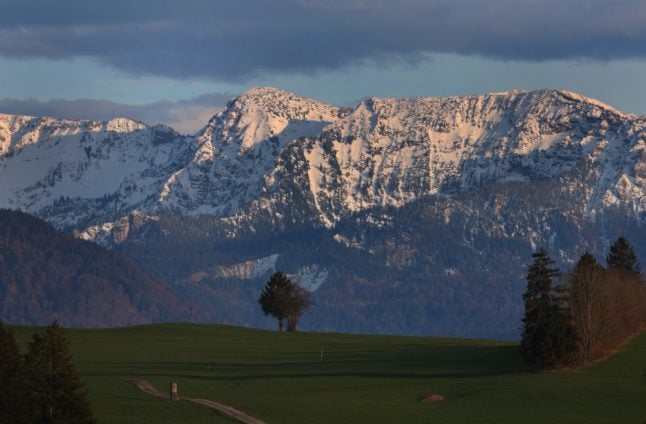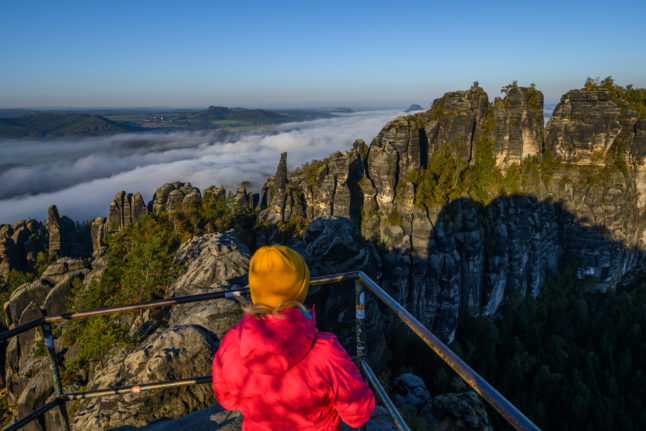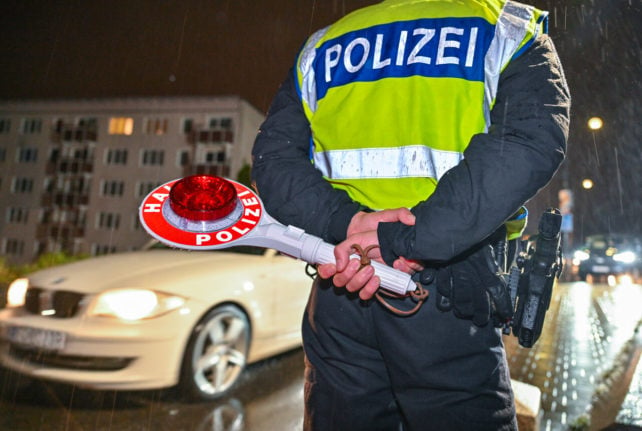Whether kicking back in a Strandkorb at the beach, wandering through one of 16 national parks, or taking in mountainous fresh air, Germans have no shortage of holiday destinations in their own country.
News portal t-online asked its German readers what their favourite destinations were for a staycation in the great outdoors.
More than half of the survey participants (57.8 percent) voted for one of Germany’s two seashores, the North Sea or the Baltic Sea (Ostsee).
READ ALSO: North Sea or Baltic Sea? How to decide between Germany’s two coasts
The Baltic Sea snagged more top votes (38 percent) than its counterpart in the west – even though the North Sea (19.8 percent) is home to the tourist magnet Sylt, a wind-swept island belonging to Germany’s northernmost state of Schleswig-Holstein.
In third place, with 12.9 percent, is the Allgäu, a Bavarian region at the foot of the Alps also known for its rolling green hills and castles. The Bodensee, a 63-kilometre lake that’s also a part of bordering Austria and Switzerland, made it to fourth place with 7.4 percent.
READ ALSO: Weekend Wanderlust: Reaching new heights in the Allgäu

The last place in the top five went to the tree-laden Bavarian Forest mountain range, with 4.7 percent of the vote. It is followed by the Black Forest (4.1 percent) in southwest Germany, the Mecklenburg Lake District (3.8 percent) and the hiker’s paradise of Saxon Switzerland (2.4 percent), known for its sweeping views and large stone formations.
While Germany’s majestic low mountain ranges didn’t call out to travelers and much as the coasts, they are still popular destinations. The Eifel, which intertwines with the wine producing region of Rhineland-Palatinate, came ahead of the Harz with 2.2 percent of the votes.
With two percent of votes, the Harz in Saxony-Anhalt are known as the highest mountain range in northern Germany.
Other popular places for a getaway in nature were the scenic Sauerland mountains (1.5 percent) straddling the states of North Rhine-Westphalia and Hesse and the Spreewald region in Brandenburg (1.2 percent), known for its rivers conducive to canoeing and pickles which are famous throughout Germany.
READ ALSO: Travel: Six reasons why the Spreewald near Berlin is worth visiting
In addition to beach holidaymakers, almost every third survey taker was drawn to destinations well above sea level: the mountain regions of Allgäu, Bavarian Forest, Black Forest, Saxon Switzerland, Eifel, Harz and Sauerland together accounted for around 30 percent of the votes.
Vocabulary
staycation – im eigenen Land Urlaub machen/Heimurlaub
Low mountain range – (das) Mittelgebirge
holidaymaker – (der) Urlauber/(die) Urlauberin
tourism magnet – (das) Tourismusmagnet
canopied beach chair – (der) Strandkorb
We’re aiming to help our readers improve their German by translating vocabulary from some of our news stories. Did you find this article useful? Let us know.



 Please whitelist us to continue reading.
Please whitelist us to continue reading.
Member comments